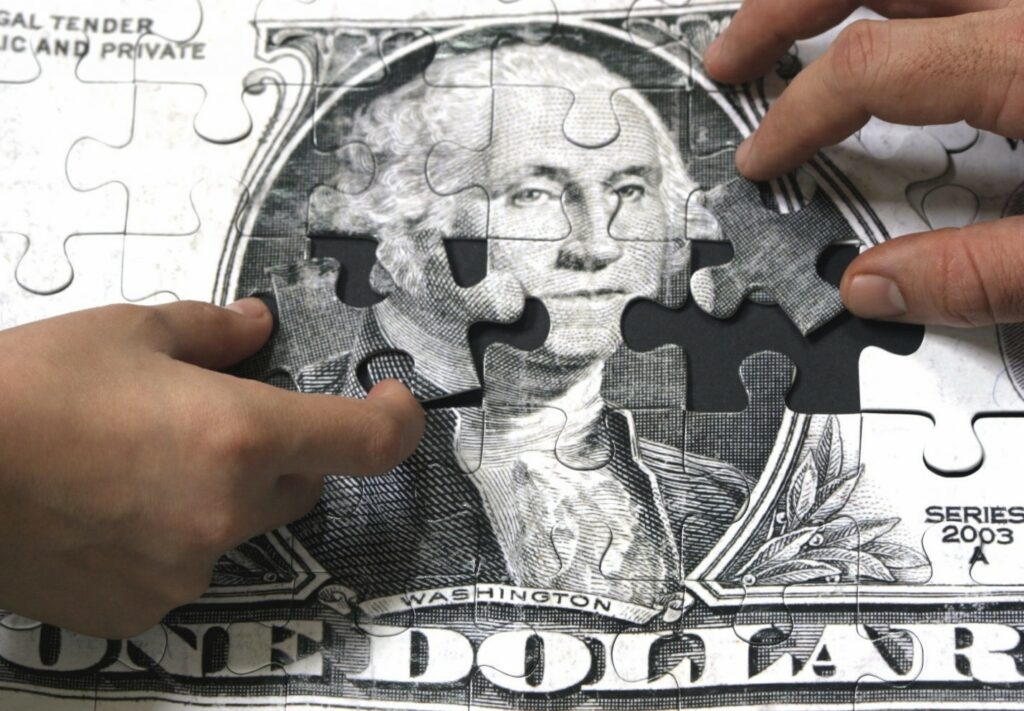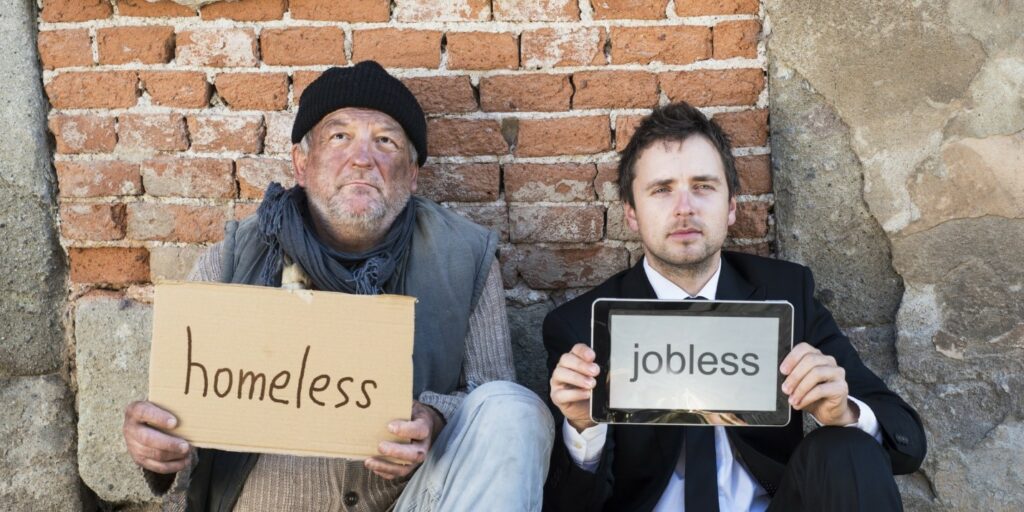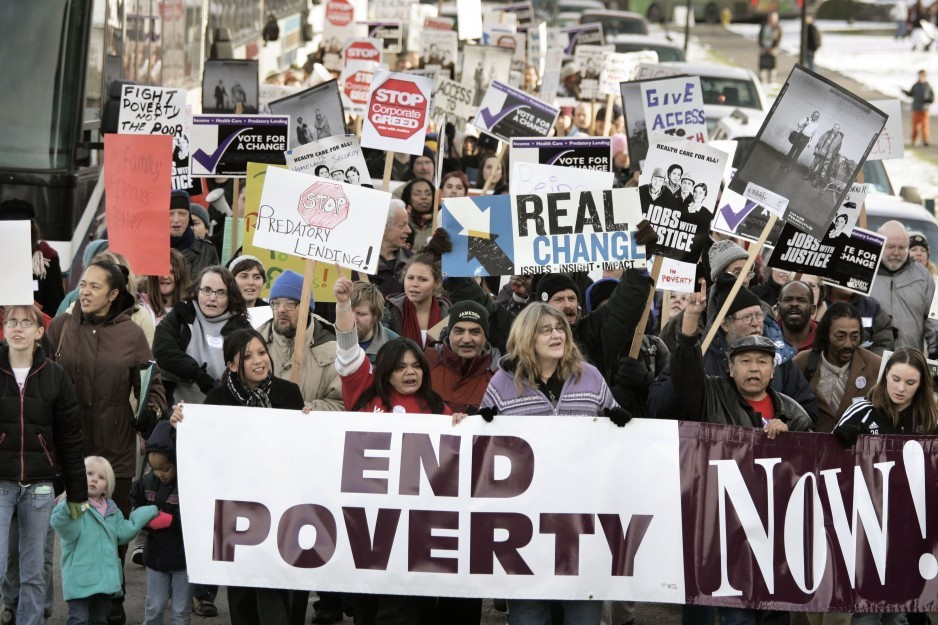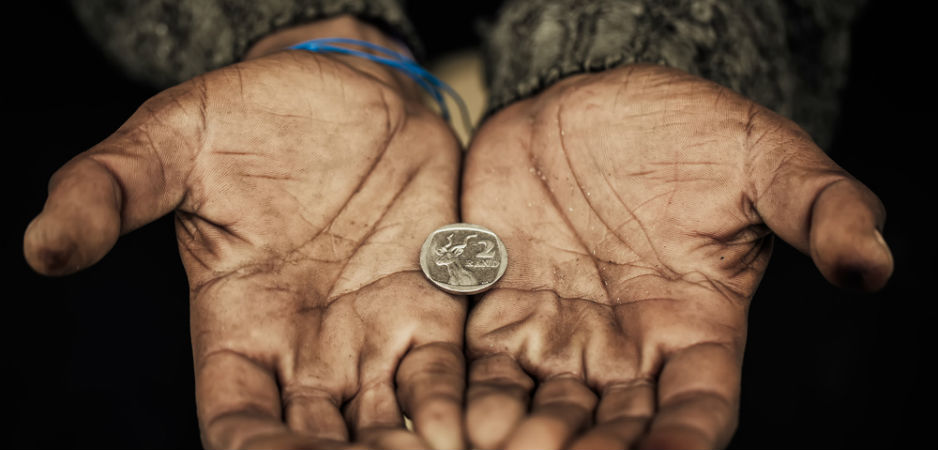Raising Awareness About Poverty in America
January is National Poverty in America Awareness Month. However, many Americans don’t realize poverty in America needs awareness. The impact of poverty in America affects households everywhere. According to the U.S. Census Bureau, the poverty rate in America is 13.4%.
Considering nearly 330 million people live in this country, that may not seem like a significant part of the population. Yet, 42.5 million Americans are living below the poverty line. That is too many.
Anyone who has ever struggled with poverty knows how extremely expensive it is to be poor.
James Baldwin
We serve many people who live with that knowledge and feel like they are living in poverty. Reputable organizations like ours help individuals struggling with unsecured debt. But, there are more Americans who don’t know where to turn. Everyone who feels trapped financially deserves help–that is a belief we hold firmly. The U.S. Health and Human Services Department explains the poverty in America guideline for an average family of four is only $26,500.
Think about that for a moment. Now, take that entire salary and pay for gas, heat, groceries, utilities, and a phone. There is extraordinarily little left in the piggy bank. And 42.5 million people live like that every month.
The Appearance of Poverty in America

In America, people can earn a living, but some Americans don’t—or can’t—earn their fair share. The reasons vary, but the outcome is the same when people can’t make ends meet trying to survive. From being protected by health insurance to having a place to live, poverty changes everything in a person’s life. It consumes them.
Many of us have heard the saying, “Living paycheck-to-paycheck,” but the ones experiencing that will tell you it hardly feels like living.
That’s why raising awareness about poverty is essential. It creates of sense of gratitude for those who have enough and a reason to give back for those who don’t.
The alarming thing about people who live in poverty is that it could be anyone—your coworker, your classmate, fellow church member, or possibly you, and no one around you knows it.
Other statistics show two out of every five households don’t have savings to get through a financial emergency. Also, one of every five children doesn’t have what the government considers “adequate resources.” If it were genuinely adequate, so many hard-working people wouldn’t feel like it’s a juggling act to survive.
The Types of Poverty in America

Did you know there are three types of poverty in the world? One isn’t better than the other because they all require the same aid to survive and the ability to manage. However, understanding the distinct types of poverty helps the rest of us become more aware of our surroundings and more empathetic about how to help people in our communities.
Secondary Poverty
Have you ever asked yourself something like, “That person complains about having two jobs all the time but then spends money on cigarettes without fail?” Sure, you have kept it to yourself, but the thoughts are there. That is considered secondary poverty. Addiction is a form of mental illness and is endemic in America for countless people.
Counseling, rehabilitation, or self-awareness is what they lack. Money allows us to forget priorities. However, financial priorities eventually demand attention, whether you’re prepared to pay for them or not. That’s when the bill collectors call, the car gets repossessed, or the power goes off. Awareness of this type of poverty allows people to get the help they need, and only then can they escape.
Relative Poverty
This is the stark reality of living “check-to-check.” There is no money in savings when a financial stressor event happens. America is one of the wealthiest countries globally, yet millions of people experience relative poverty every day of their lives.
There is an “average standard of living” in this country. That standard says we should be able to live comfortably. Birthdays, holidays, and coming-of-age gifts (e.g., cars, insurance, prom, graduation) may hurt to purchase. So does setting a little aside every month, but that’s living. At least, for the majority of Americans today.
Absolute Poverty
Most people have an image of people who “live in poverty.” Regretfully, that image usually depicts individuals living in absolute poverty. They don’t earn the bare minimum to survive. That existence drones on and on, through months or years.
It is difficult or impossible to go out on a whim and purchase what so many other people take for granted every day. Safe drinking water, adequate health care, or enough food to satisfy hunger pangs are not things most Americans find difficult to run out and get on a moment’s notice.
For those living in absolute poverty, it requires preparation and time, if possible, to do it at all.
The Solution for Poverty in America

It is improbable to end poverty without starting a heated political debate. The interesting thing is anyone reading this post knows what needs to happen but has little power to make it happen.
However, don’t doubt what you can do. Take sociopolitical actions to help humanity, such as supporting pay equity to set up a fair labor market or advocating for the increase of minimum wage to open the doors of economic stability. Take other more personal actions, like putting money in savings with every check or mindful of every coin you spend.
Overall, you can become more empathetic toward others. Looking at someone is never a surefire way to gauge their living situation. Just because a person has dirty fingernails and torn-up jeans don’t mean they live in poverty. They could be well-off but own an automotive repair business.
Whatever the situation, we need to do our part to stop each kind of poverty for everyone. We deserve better. We should strive to gain better. And if you are one of the fortunate ones to escape poverty, pay it forward. Remember when someone sent you a life preserver? Do the same for someone else.
Only together can poverty in America end. Look around. Do some research. Help someone in need. You can make a difference today.
